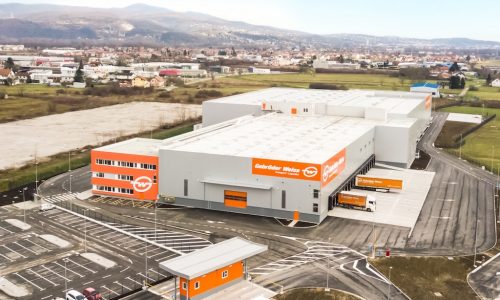- Ambition to become climate neutral in 2050
- 45% reduction of GHG emissions in 2030 from 2008 baseline
- 25-35% reduction expected between 2019 and 2030
DFDS has developed a climate action plan to consistently reduce Greenhouse Gas (GHG) emissions and ultimately become climate neutral by 2050.
DFDS’ ferry and logistics network provides vital services for trade and travel in and around Europe covering countries bordering the Baltic Sea, North Sea, English Channel and the Mediterranean. In 2019, the network emitted around two million tons of CO2 of which 90% was from ferries and the rest mainly from logistics operations.
“I am very happy that we now have an ambitious and comprehensive climate action plan in place. It clearly states how we can and will take responsibility for the environment. The plan will also help us stay relevant as a provider of ferry and logistics services for both freight customers and passengers in the coming decades,” says Torben Carlsen, CEO of DFDS.
Three key climate plan actions
Next 10 years: 29 technical initiatives aim to reduce emissions from the ferry fleet by 45% from 2008 to 2030, with 25-35% expected to be achieved between 2019 and 2030. Initiatives include technical upgrades such as bulb and propeller modifications and anti-fouling treatment of hulls. Decision support systems for fuel performance will also contribute.
Long-term ferry fuel replacement: Introduction of a new generation of zero emission fuels to replace fossil fuels. The new fuels are sustainable as they consist of renewable energy stored in the form of ammonia, hydrogen, or methanol. Storage, handling and use of such new fuels is very different to how we do things today. Projects and partnerships are already initiated to learn more, develop processes and share knowledge as well as participate in the construction of a hydrogen factory. The fuel replacement is focused on new generations of ferries and retrofitting of newer ferries.
Trucks, terminals, facilities and offices: This part aims to reduce emissions from third-party haulier trucks, own trucks and equipment used in port terminals. One initiative will focus on the use of electric trucks. Plans also include energy consumption for buildings and a company car policy. Many of these initiatives will be done in collaboration with key suppliers to reduce the environmental impact.

